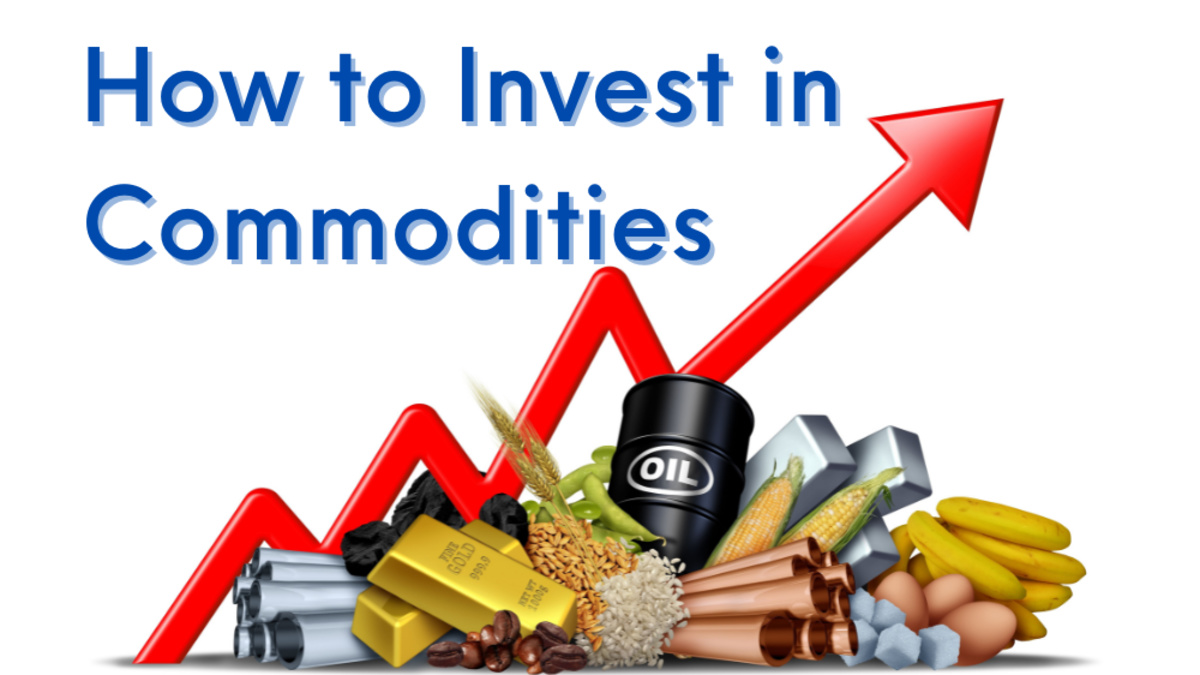How to Invest in Commodities – Tangible Goods and Rewards

Joy Wallet is advertiser-supported: we may earn compensation from the products and offers mentioned in this article. However, any expressed opinions are our own and aren't influenced by compensation. To read our full disclosure, click here.
What are commodities?
Energy commodities
Metals commodities
Agricultural commodities
Livestock commodities
- Over 100 Stock Picks with 100%+ Returns
- Averaged Stock Pick Return over 593% (vs. 165% for the S&P)
- 2 New Stock Picks Every Month
- Investment Community With 700,000+ Loyal Members
- 30-Day Membership-Fee-Back Guarantee
- Joy Wallet Reader Deal: The Motley Fool is offering 50% off its top stock-picking service for new members (Limited Time)
How to invest in commodities
Futures contracts
Exchange-traded funds (ETFs)
Commodity mutual funds
Pros and cons
- Diversification. Commodities have a low correlation with traditional asset classes, such as stocks and bonds, making them an effective portfolio diversification tool.
- Inflation hedge. Commodities have historically been considered a hedge against inflation, as their prices tend to rise during periods of higher inflation.
- Potential for high returns. Commodities can experience significant price fluctuations, presenting opportunities for investors to earn substantial profits.
- Volatility and risk. Commodities can be highly volatile, influenced by factors beyond investors' control, such as geopolitical events, weather conditions, and supply-demand imbalances.
- Lack of income generation. Unlike stocks or bonds, commodities do not generate regular income through dividends or interest payments.
- Complexity. Certain commodity investment methods, such as futures contracts, require specialized knowledge, and active management, and can involve a steep learning curve.
- Over 100 Stock Picks with 100%+ Returns
- Averaged Stock Pick Return over 593% (vs. 165% for the S&P)
- 2 New Stock Picks Every Month
- Investment Community With 700,000+ Loyal Members
- 30-Day Membership-Fee-Back Guarantee
- Joy Wallet Reader Deal: The Motley Fool is offering 50% off its top stock-picking service for new members (Limited Time)
FAQs
The bottom line
Joy Wallet is an independent publisher and comparison service, not an investment advisor, financial advisor, loan broker, insurance producer, or insurance broker. Its articles, interactive tools and other content are provided to you for free, as self-help tools and for informational purposes only. They are not intended to provide investment advice. Joy Wallet does not and cannot guarantee the accuracy or applicability of any information in regard to your individual circumstances. We encourage you to seek personalized advice from qualified professionals regarding specific investment issues. Featured estimates are based on past market performance, and past performance is not a guarantee of future performance.
Our site doesn’t feature every company or financial product available on the market. We are compensated by our partners, which may influence which products we review and write about (and where those products appear on our site), but it in no way affects our recommendations or advice. Our editorials are grounded on independent research. Our partners cannot pay us to guarantee favorable reviews of their products or services.
We value your privacy. We work with trusted partners to provide relevant advertising based on information about your use of Joy Wallet’s and third-party websites and applications. This includes, but is not limited to, sharing information about your web browsing activities with Meta (Facebook) and Google. All of the web browsing information that is shared is anonymized. To learn more, click on our Privacy Policy link.
Images appearing across JoyWallet are courtesy of shutterstock.com.








